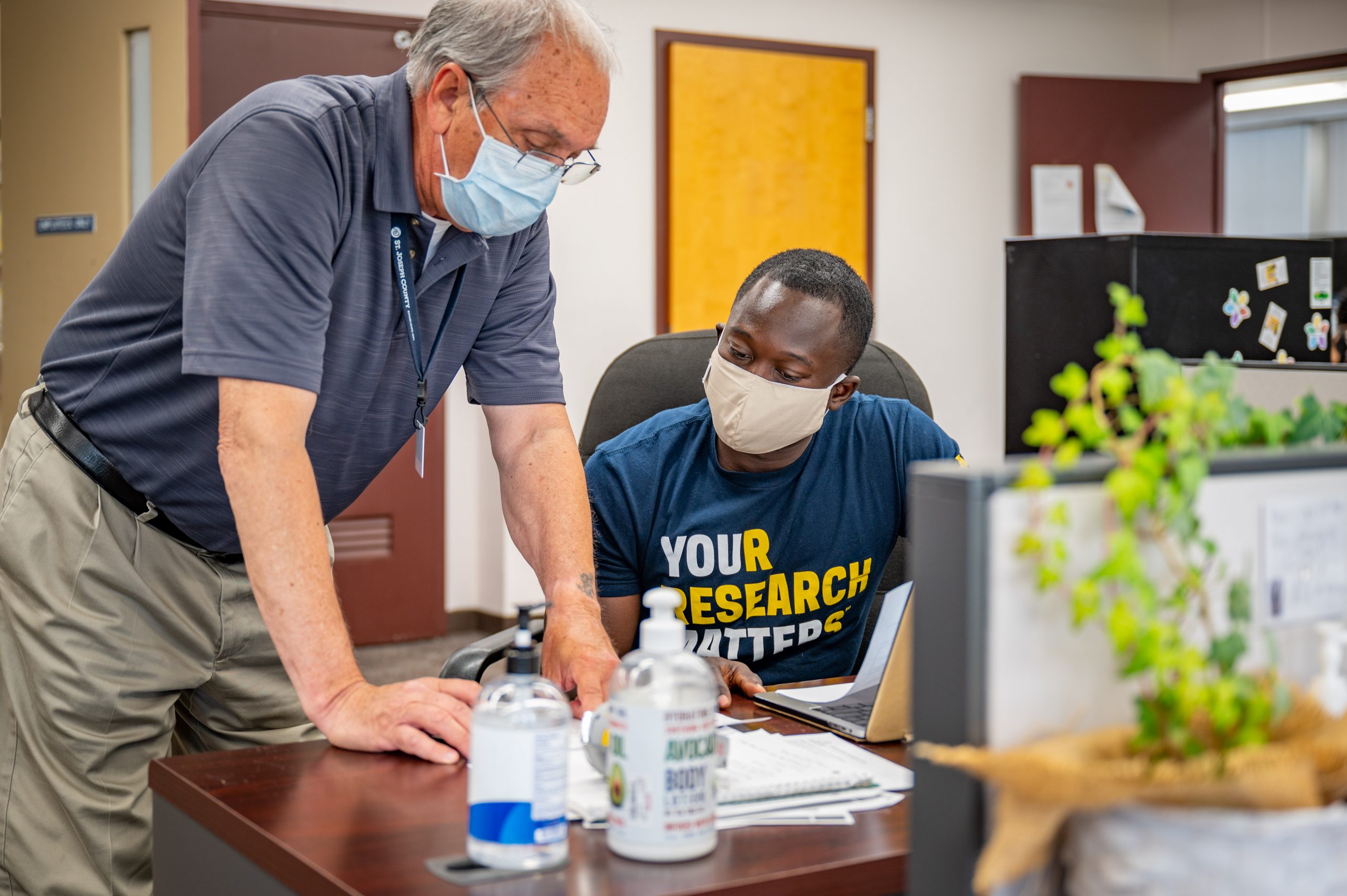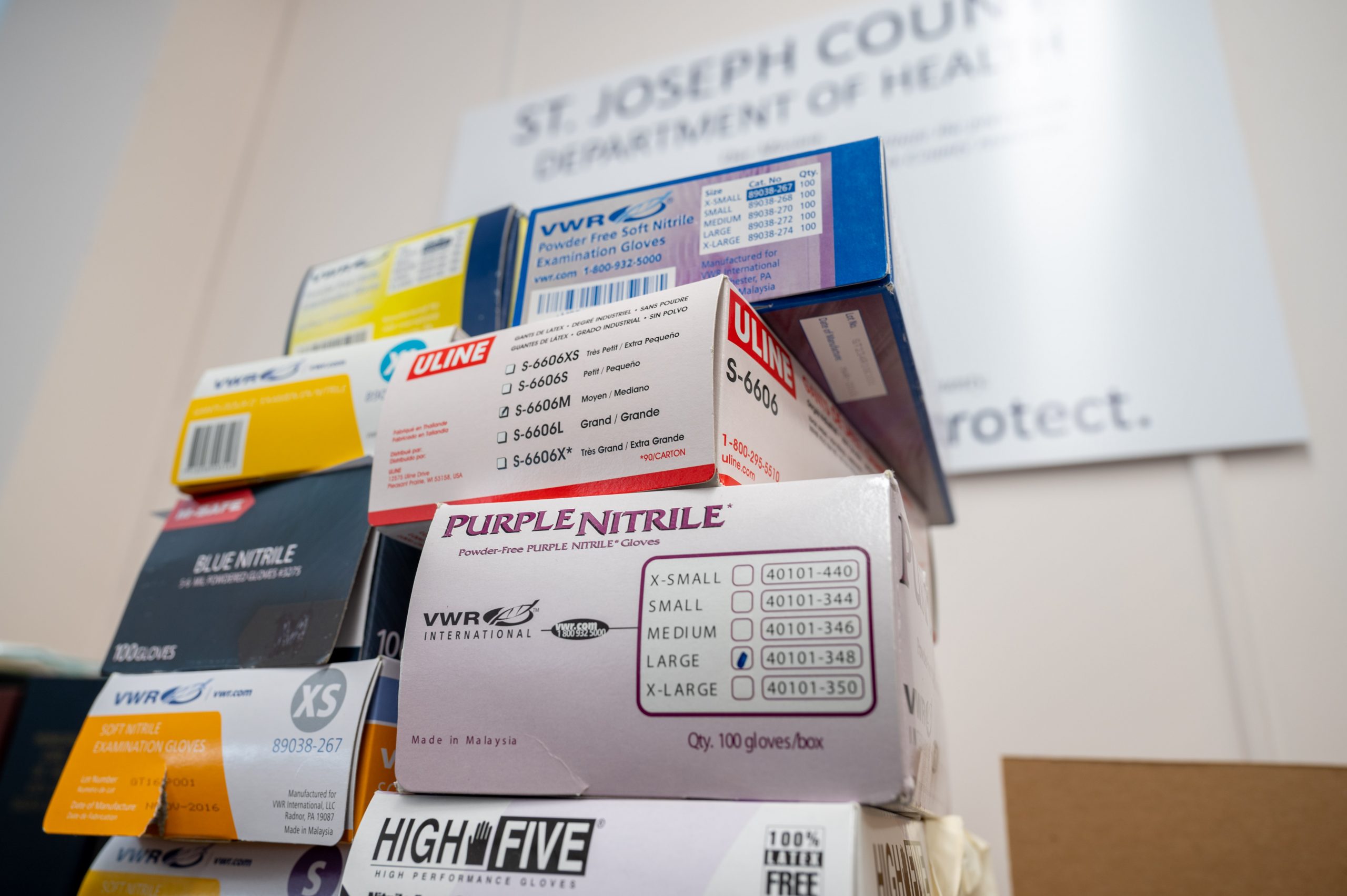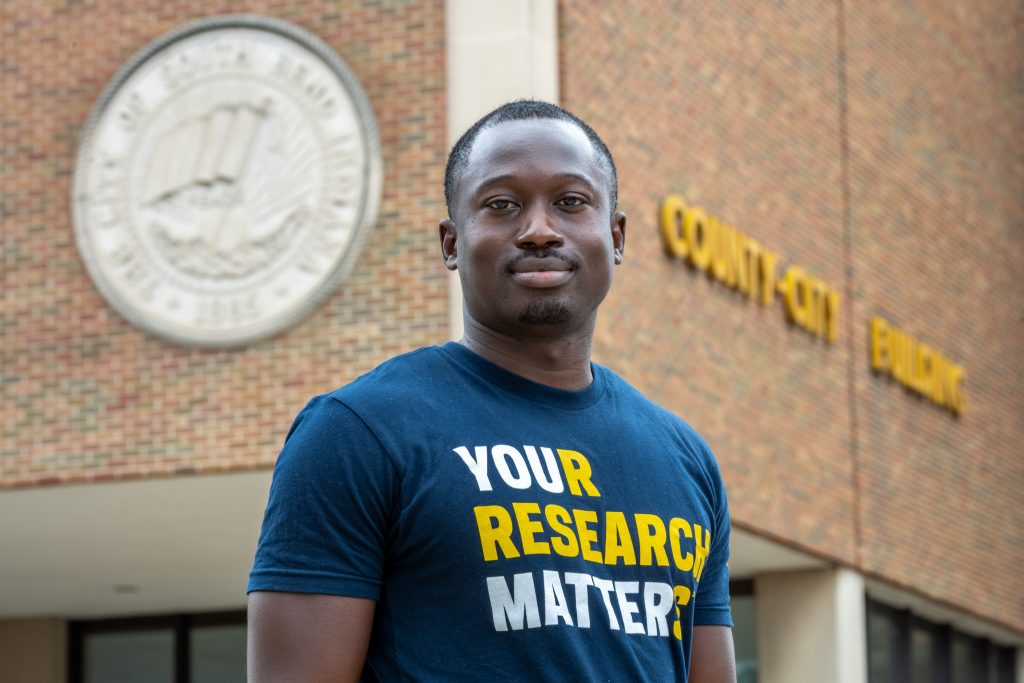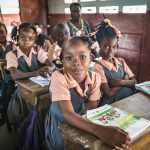Since the coronavirus pandemic arrived in the United States, Asinamai Ndai has played an important role advising the St. Joseph County Health Department, which serves residents of South Bend and surrounding areas. Relying on public health expertise he acquired in Nigeria, his home country, he has helped health department officials forecast needs for personal protective equipment (PPE).
“On the county level we have been caught not having enough PPE for nursing homes, long-term health care facilities, shelters, and other congregate living facilities,” said Robert Einterz, MD, the St. Joseph County health officer who heads the department. “No one had ever systematically looked at our needs for gowns, gloves, N-95 masks, face shields, and hand sanitizer.”
Ndai came to the Keough School with undergraduate and master’s degrees in public health. One of the pioneers of a mobile clinic initiative serving HIV patients in Nigerian refugee camps, he also has worked for the USAID Global Health Supply Chain Program, ensuring that a life-saving supply chain of health commodities reached the populations that need them. Using data analysis skills he honed while working on HIV treatment supply lines, Ndai helped the health department quantify both current and future PPE needs.
“We are anticipating that something like COVID-19 will occur sometime in the future with a new virus and we asked him to determine what our needs and costs will be,” Einterz said.

Ndai first reached out to the health department in mid-March, shortly after Notre Dame announced that in-person courses and University-sponsored travel were suspended.
“My idea was to try to create some sort of centralized database of supplies and requests, as we have in Nigeria,” Ndai said. “Now something that was once a phone call can be taken care of through an online form.” Ndai also recommended that the health department have a complete and regularly updated database of all facilities providing health care, dental care, long term care, funeral homes and any other facility that may require PPE so they would be suitably equipped with PPE in the case of a future pandemic.

Ndai also drew from data analysis skills he gained in his policy evaluation course at the Keough School, as well as experience working with Harvard’s Program in Global Surgery and Social Change through the Integration Lab (i-Lab).
“My experiences at the Keough School have given me more experience and insight into how to organize and harmonize a supply chain and create policies for supply,” he said.
Twice a week, since May, Ndai biked four miles round trip to assist the health department. When his bike was stolen, he walked. He recently wrapped up his work with the department to focus on his upcoming fall semester courses, but health department officials say he’s made a lasting contribution.
“We’re grateful for his expertise that has been so relevant to our own needs,” Einterz said. “And he’s such a humble, upbeat person. Simply knowing him has been a positive experience.”



